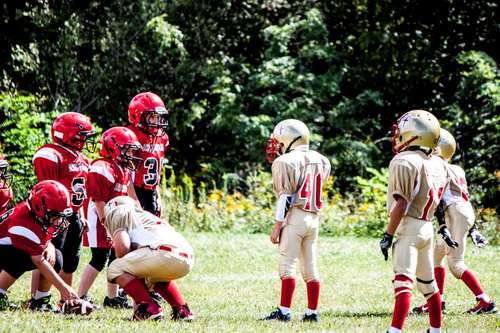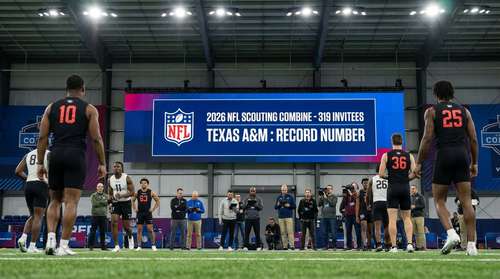Mark Davis's recent comments on having faith in the people he hired are stirring up conversation not only among Raiders fans but also among leaders in various fields. When the sports world grapples with setbacks, his unwavering trust in his coaching and management team offers a refreshing perspective. It’s a reminder that sometimes, the key to long-term success is patience—and a willingness to let your team prove themselves.
In challenging times, keeping faith in the people around you is more than just a nice sentiment; it’s a strategic approach. Mark Davis believes that leadership isn’t just about making quick changes after a loss, but about building something sustainable over time. This message resonates with anyone who has ever faced a setback and wondered whether their trust in others was misplaced.
There’s a certain calm confidence in knowing that the people you hired can turn things around. It’s like planting a seed and waiting for it to grow despite the unpredictable weather—a process that requires both trust and a little bit of luck.
The Importance of Trust in Leadership
Before diving deeper, let’s look at why trust in employees and leadership is so vital. Trust is the foundation of any successful organization, whether in sports or business. Without it, even the most talented team can crumble under pressure. Leaders like Mark Davis understand that effective management isn’t about constant intervention, but about trusting your team to deliver results.
Mark Davis’s stance is a lesson in effective leadership. His approach is built on the belief that when you hire the right people, they deserve an opportunity to succeed. It reminds me of a time when a coach took a chance on an unknown player, giving that individual the space to try, fail, learn, and eventually shine. That process, though sometimes messy, is crucial for growth.
Trust in employees and leadership is not a one-off decision—it’s an ongoing process. This perspective is particularly important in high-pressure environments like the NFL. When a team suffers a significant loss, the instinct is often to look for immediate fixes or even changes in personnel. But Davis argues that real, organizational success comes from nurturing your existing relationships and giving your leadership team the room to evolve. And isn’t that a valuable lesson for managers in all sectors?
Such an approach can be compared to steering a ship through choppy waters. You wouldn’t abandon an experienced crew mid-voyage just because the seas are rough. Instead, you trust that their skills and resilience will get you through, and eventually, the storm will pass.
Lessons from Sports and Business Leadership
Mark Davis's determination to stand by his coaching and management staff despite setbacks isn’t just typical for sports—it’s a principle shared by successful business leaders too. Building an effective management team is like assembling a puzzle, where every piece has its role. Davis has drawn on similar experiences from other sports franchises to underscore his point: trust and leadership go hand in hand.
In both sports and business, the idea is simple but profound—if you change the leadership too frequently, you lose the continuity needed for long-term success. Think about it: what would happen if you kept switching out a playbook every time a deal fell through or a game was lost? The constant upheaval would hinder progress. Mark Davis understands that lasting success requires a steady hand, even during turbulent times.
For instance, many successful business moguls have noted that behind every thriving company is a team that was given time to innovate and develop. Mark Davis’s faith in his employees echoes a similar sentiment: you can’t measure leadership abilities by a single win or loss. Leadership is measured by how you restore company momentum after a setback.
This belief isn’t a blind leap of faith but a well-calculated management strategy. The phrase 'faith in people' in this context stands as a powerful metaphor. It’s about giving people the benefit of the doubt and watching them transform challenges into opportunities. By allowing time for his team to work through their difficulties, Davis affirms that true leadership means believing in the collective ability of a group despite individual setbacks.
Navigating Setbacks with Patience and Support
The conversation around Mark Davis’s words often touches on the balancing act between accountability and support. Patience in leadership is more than waiting; it’s an active decision to back your team and provide them with the necessary resources to recover and improve. Have you ever felt that a little support at the right moment made all the difference in your work? That’s the kind of workplace confidence Davis aims to foster.
When a major loss shakes the locker room, the immediate reaction might be to question everyone’s capabilities. Yet, Davis puts forward a strategy rooted in trust. By maintaining faith in people, he creates an environment where his employees are motivated to rise above the challenge. This approach strengthens team trust over time and builds a culture of resilience—a lesson that goes beyond the football field and into everyday leadership.
This isn’t just about sticking to a decision; it’s about genuine belief in understanding that talents and skills take time to shine. The metaphor of a gardener tending to his plants comes to mind—a gardener does not uproot a plant because it hasn’t blossomed overnight, but rather continues to nourish it until it grows robust and beautiful.
Real-World Implications and Future Prospects
This philosophy of trusting leadership is not only a roadmap for overcoming current setbacks, but also a blueprint for future organizational success. Leaders in various industries can see a parallel in Mark Davis's approach, where right management strategies underpinned by employee trust lead to both innovative strategies and improved performance.
The idea of having faith in people, especially during difficult times, is a timeless principle that applies equally to sports franchises and business leaders. Maintaining trust in employees encourages continuous improvement and fosters a work environment that’s both innovative and resilient. When we talk about effective management, it’s clear that the support of your team isn’t just a bonus—it’s the backbone of building an enduring organization.
Looking ahead, Davis's stance might challenge conventional wisdom, but it also offers a hopeful perspective for the future. History has shown that organizations backed by steadfast trust in their people often emerge stronger after setbacks. That future you envision could very well be built on the same principles: faith, patience, and a commitment to nurturing talent.
In wrapping up, Mark Davis's message is simple yet powerful. Trust in the capabilities of your team, give them the chance to learn from their mistakes, and stand by their side as they navigate challenges. It’s a lesson that extends beyond the field of sports and into every realm of leadership and management.




